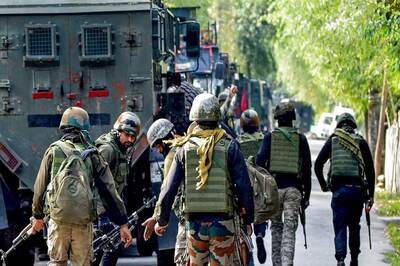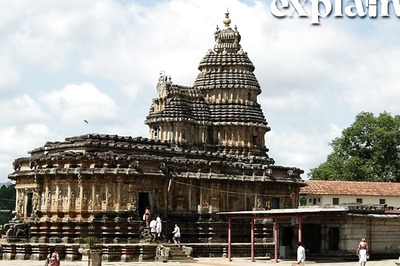
views
New Delhi: India's jostling with China for resources and influence will be the backdrop to a visit to Bangladesh by Prime Minister Manmohan Singh next week, looming large over expected progress on a border dispute, water sharing and trade.
New Delhi's relations with its eastern neighbour have warmed thanks to Bangladeshi Prime Minister Sheikh Hasina's clampdown on separatist insurgents in India's isolated north-east who long sheltered across the shared border.
India reciprocated last year with a $ 1 billion credit line for infrastructure development and promises to drop trade barriers.
Singh and Hasina are expected to sign agreements to swap disputed territory dating back to the 1947 partition of British India, as well as pacts on water rights from major shared rivers, during the September 6 to September 7 trip, the first by an Indian Prime Minister to Bangladesh in 12 years.
But India's overtures are dwarfed by Bangladesh's flourishing friendship with its main trading partner, China, a big weapons supplier that is also helping build ports in the riverine nation that straddles the Ganges Delta and the Bay of Bengal.
"China is much more disposed to support Bangladesh in ways that India will not do, such as arming the military," said Lawrence Saez, chair of the Centre of South Asian Studies at London's School of Oriental and African Studies.
A fast-growing economic powerhouse, India is keen to win energy supplies and influence with its neighbours, but China is several steps ahead even in South Asian countries such as Nepal and Sri Lanka, where India could be a natural leader.
Many in Bangladesh, a nation of 160 million encased on three sides by India, consider their giant neighbour a neo-colonial threat. Even India-friendly Hasina would think twice before giving the country access to mostly untapped natural gas reserves.
Currently Bangladesh does not produce enough gas for domestic demand and exports are not on the cards.
In 2006, India gave up on a planned pipeline to bring natural gas from Myanmar through Bangladesh, citing too-tough conditions imposed by Dhaka.
Eyes East?
Still, better relations with Bangladesh should bring benefits for both sides.
India helped its neighbour secede from Pakistan in a bloody 1971 war, but relations were frequently fractious after that. Hasina's arch-rival, Begum Khaleda Zia of the Bangladesh Nationalist Party, is more suspicious of India and ties could be tested if she regained power in an election due in 2013.
The current rapprochement will in theory bring down trade barriers and revive rail, road and river routes - abandoned since the British colonial era - that connect India to its north-eastern states, such as Assam.
Such a route could legalise millions of dollars in trade through Bangladesh currently in the hands of smugglers. Right now, of the $ 5.1 billion in legitimate bilateral trade flows, exports from Bangladesh to India account for just $500 million.
Opponents, including Khaleda, a former prime minister, are against the transport corridor, saying India may use it to ship military hardware to quell unrest in its north-east.
Kanwal Sibal, formerly India's top foreign affairs civil servant, said such views came from sectors wanting to keep Bangladesh closer to China and "gum up" the relationship.
He said in the future trade links could extend beyond the north-eastern states, into Myanmar and South-East Asia.
"We can develop this West-East connectivity," he said. "Rather than allowing China the freedom to develop North-South linkages and forestalling the development of West-East linkages."
Delhi still has some way to go to win trust from Bangladesh. In the past decade, Indian security forces have killed about 1,000 Bangladeshi migrants trying to cross a 2,880-km (1,790-mile) border fence.
And the flood- and drought-prone nation complains India controls the flow of the vast Ganges river in violation of treaties, heightening the impact of climate-related disasters.
Prime Minister Singh did not help matters by telling a group of newspaper editors last June that a quarter of Bangladesh's population was "in the clutches" of Pakistan's ISI intelligence agency.
That misstep was quickly smoothed over by diplomats and Indo-Bangladeshi relations look likely to keep on improving, at least until general elections in both countries in 2013 and 2014.
"It would be too much to expect that this one visit will resolve piles of issues with a magic lamp," one Bangladeshi government official said.
"However, the visit will certainly lay the foundation of a new beginning in bilateral relations that have had often been dogged by mistrust, fears and a sense of insecurity."



















Comments
0 comment